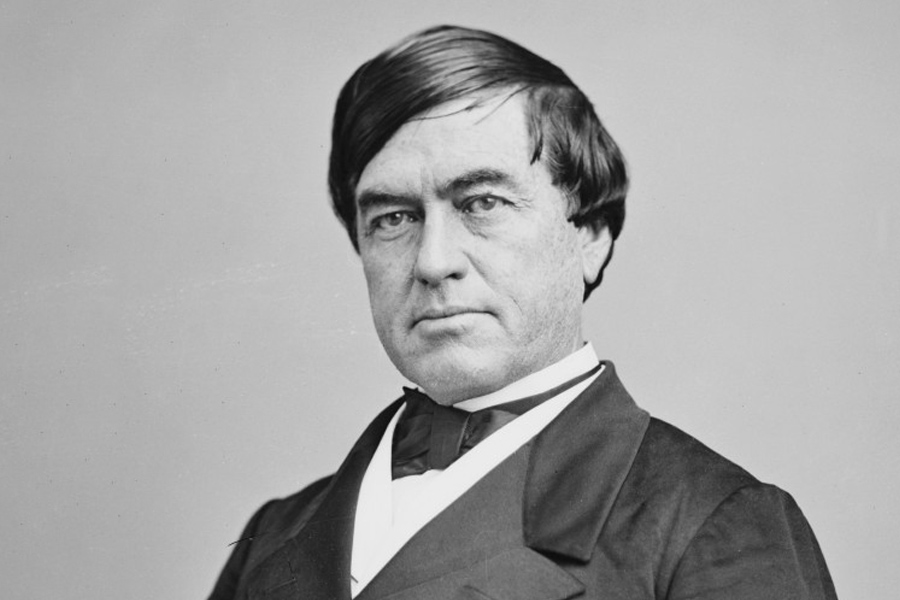Basic Information
| Field | Details |
|---|---|
| Full name | Cassius Marcellus Clay Sr. |
| Also known as | “Cash” Clay |
| Born | November 11, 1912 |
| Place of birth | Jefferson County (Louisville), Kentucky, USA |
| Died | February 8, 1990 (age 77) |
| Primary occupations | Sign and billboard painter; musician (pianist/composer); occasional Baptist minister |
| Known for | Father of Muhammad Ali (born Cassius M. Clay Jr.) |
| Parents | Herman Heaton Clay (1876–1954) and Edith Edean Greathouse (1889–1972) |
| Siblings | One of six; included sister Eva and brother Nathaniel |
| Spouse | Odessa Lee Grady Clay (1917–1994) |
| Marriage | Mid-1930s (some records cite 1934; others note a 1941 legal ceremony) |
| Children | Muhammad Ali (1942–2016), Rahaman Ali (born 1943) |
| Residence | Louisville, Kentucky |
| Religious life | Preached at Baptist churches; raised in a Christian home |
| Political views | Outspoken Republican during the Jim Crow era |
| Personality notes | Flamboyant, combative wit; proud, artistic, and outspoken |
Early Years and Roots in Louisville
Cassius Marcellus Clay Sr. entered the world in a segregated Louisville on November 11, 1912, a place where talent had to thread the needle of opportunity. He was named after the 19th‑century Kentucky abolitionist Cassius Marcellus Clay, an emblem of paradox in a state stretched between Unionist memory and Southern custom. His parents, Herman Heaton Clay and Edith Edean Greathouse, brought him up with church on Sundays and work the rest of the week. He was one of six children—a close-knit brood in which quick humor and stubborn pride were everyday tools of survival.
As a boy, Cash drew constantly. In school notebooks, on scraps, anywhere he could. By his teens he was sketching letters with showman’s flair and training his hands to play piano riffs he heard drifting from Louisville’s storefront bars. Racism hemmed the edges of his world—jobs that would have trained and elevated a white apprentice closed to him—but he kept moving forward, one painted sign, one song, one sermon at a time.
Art, Work, and the Limits of Jim Crow
Clay Sr.’s working life took shape at the easel ladder of a sign painter. From the 1930s through the 1970s, he lettered windows and billboards, dressed church walls in scripture, and gave businesses a face. In an era before digital anything, his brush was brand, billboard, and invitation. The craft paid the bills, but the ambition was larger: he wanted the canvas, not just the storefront. He played piano in neighborhood rooms, wrote tunes, and occasionally accepted a pulpit, delivering Baptist sermons with a cadence that could swing like a hymn and strike like a bell.
The ceiling was real. The color line turned doors into walls, recognition into rumor. He blamed discrimination for dreams kept small, and the bitterness sometimes showed. Yet the work was real too—daily, necessary, physical—and it shaped a persona that his eldest son would later refine on the world’s stage: style, timing, and bravado braided into performance.
Marriage, Home Life, and a Complex Fatherhood
Sometime in the mid-1930s, Cash married Odessa Lee Grady, a gentle, steady presence he adored and exasperated in equal measure. Records dispute the exact date—some list 1934; others point to a June 25, 1941 ceremony—but no one disputes the partnership: a working-class Louisville home where faith anchored Sundays, chores made the weekdays, and art—music, paint, words—filled the cracks.
Two sons arrived fast. Cassius Jr. was born January 17, 1942; Rudolph (later Rahaman) on July 18, 1943. The boys grew up hearing their father’s piano and his punchline wit, watching him step lightly in sharp clothes, and seeing him turn a bare wall into a message. Cash pushed the elder boy toward showmanship as much as sport. The fast hands that would master the ring first learned rhythm at home.
Father and son, though, did not agree on everything, especially faith. When Cassius Jr. embraced the Nation of Islam in 1964 and became Muhammad Ali, the father bristled. He voiced his disapproval loudly—he was loud about most convictions—and the clash was public. Yet their bond, complicated as it was, endured. Muhammad inherited his father’s flair, learned from his missteps, and never forgot who taught him to command a room with a sentence and a smile.
Personality, Politics, and the Public Eye
Cash Clay was a contradiction in a region of contradictions. A Black southerner who leaned Republican during the one‑party Jim Crow age, he was vocal about his views and unafraid to debate them—in barbershops, on corners, with reporters who sometimes came calling when his son’s star rose. He liked fine clothes and a quick retort, and he drank too much. The latter brought trouble: arrests tied to intoxication and disturbances dot accounts of his middle years, a reminder of how volatility shadowed his charisma.
He never grew wealthy. His was a workingman’s life: steady gigs, lean stretches, family obligations, and small victories. His famous son’s success lifted the family’s visibility and comfort, but Cash remained, at core, a Louisville artisan with paint on his fingers, a melody in his throat, and politics on his tongue.
Family at a Glance
| Relation | Name | Life Dates | Notes |
|---|---|---|---|
| Father | Herman Heaton Clay | 1876–1954 | Laborer; raised family amid early 20th‑century Louisville constraints. |
| Mother | Edith Edean Greathouse | 1889–1972 | Homemaker; Baptist influence in the household. |
| Spouse | Odessa Lee Grady Clay | 1917–1994 | Steady anchor of the home; domestic worker; mother of two sons. |
| Son | Muhammad Ali (born Cassius M. Clay Jr.) | 1942–2016 | Three‑time heavyweight champion; global icon; converted to Islam in 1964. |
| Son | Rahaman Ali (born Rudolph V. Clay) | 1943– | Boxer and activist; close to the family’s faith roots. |
| Daughter‑in‑law | Khalilah Ali (Belinda Boyd) | 1950– | Married Muhammad Ali in 1967; mother to several of Cash’s grandchildren. |
| Granddaughter | Laila Ali | 1977– | Undefeated boxing champion; television host. |
| Granddaughter | Rasheda Ali | 1970– | Author and advocate for her father’s legacy. |
| Granddaughter | Hana Ali | 1976– | Writer and curator of family stories and archives. |
| Granddaughter | Maryum “May May” Ali | 1968– | Public servant and philanthropist. |
| Grandson | Muhammad Ali Jr. | 1972– | Lived largely out of the spotlight. |
| Grandson (adopted) | Asaad Amin | 1986– | Adopted by Muhammad later in life. |
Note: Muhammad Ali had nine children across several relationships; the list above highlights some of the best‑known grandchildren of Cash Clay Sr.
Craft, Charisma, and the Making of “Ali”
The most visible part of Clay Sr.’s legacy is the echo of his voice in Muhammad Ali’s. The patter, the flamboyance, the improvisational wit—these were first rehearsed in the Clay household, long before a microphone found the young champion. Cash taught what he knew: how to make an entrance, how to hold a crowd, how to turn confidence into rhythm. When the son boasted he was the greatest, the father’s stagecraft was whispering in the wings.
This legacy even found its way onto screens. Cash has been portrayed in films about his son’s life, notably in Ali (2001), capturing the blend of charm and contradiction that made him a memorable, if complicated, patriarch.
Faith, Friction, and Reconciliation
Cash Clay’s religious life was practical and pulsing: he preached when asked, played hymns when needed, and believed talent itself was a gift meant to be used. That grounded certainty collided with Muhammad’s conversion in the mid‑1960s. Their disputes were sharp—public at times—but they navigated back to affection. In later years, photographs and family recollections show warmth: an aging father proud of a son who had become giant and gentle, and a son at peace with the flawed man who taught him to stand tall.
Dates, Places, and Touchstones
- 1912: Born in Jefferson County, Kentucky.
- 1930s: Begins career in sign and billboard painting; plays piano locally.
- Mid‑1930s–1941: Marries Odessa Lee Grady; two sons born in 1942 and 1943.
- 1960s: Publicly comments on Muhammad’s fights and religious conversion; intermittent legal troubles tied to drinking.
- 1970s: Continues painting and community presence as his son reigns in the ring.
- 1990: Dies at age 77; remembered locally as an artist and nationally as the father of a legend.
FAQ
Who was Cassius Marcellus Clay Sr.?
He was a Louisville sign painter, musician, and occasional Baptist preacher, best known as the father of Muhammad Ali.
Why was he named “Cassius Marcellus Clay”?
He was named after the 19th‑century Kentucky abolitionist of the same name, a prominent (and polarizing) figure in the state’s history.
What did he do for a living?
He painted signs and billboards for decades, played piano, and sometimes preached in Baptist churches.
How did he influence Muhammad Ali?
His flair for performance—wit, rhythm, timing—helped shape Ali’s showmanship and public voice.
Was he supportive of Ali’s conversion to Islam?
No; he objected loudly in 1964, though father and son later reconciled.
What were his politics?
Unusually for a Black southerner in that era, he identified as a Republican and spoke his mind about it.
Did he have legal troubles?
Yes, accounts note arrests connected to heavy drinking and public disturbances during the 1950s–1960s.
Was he wealthy?
No; he lived a working‑class life, with modest means and no known substantial estate.
When and where did he die?
He died on February 8, 1990, at age 77, after spending his life primarily in Louisville, Kentucky.
Who were his immediate family members?
He married Odessa Lee Grady and had two sons, Muhammad Ali and Rahaman Ali, along with numerous grandchildren through Muhammad’s large family.



